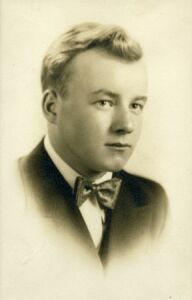May 2006
![]()
Essays, poems, opinions and humor on seeking
and finding answers to your deepest life-questions
|
This month's contents:  Ama Dablam in the Himalayas
Ama Dablam in the Himalayas
Meeting Richard Rose: 1978 (part 1) by Art Ticknor | Reason for Existence by Alfred Pulyan | How I Came to Understand then Overcome Autism Conditions by Steve Brier | That Which Is Not by Bob Fergeson | Poems by Shawn Nevins | What the Bleep? by Shawn Nevins | Heaven by Art Ticknor | Humor
|
Meeting Richard Rose
Notes from 1978 (part 1)
by Art Ticknor
Author's note: After seeing the value of the "Quotes and Notes" material that Shawn Nevins contributed in the August 2005 memorial issue of the TAT Forum, I was inspired to go back through my own journals to capture things I'd made notes on that I heard Richard Rose say over the years I knew him. Not surprisingly, there was a gold mine of material from that first year, 1978, beginning with what follows.
![]()
March 29, 1978
I had been attending weekly meetings of the Ohio State University "Pyramid Zen" group for the previous five weeks. Richard Rose showed up unexpectedly for the meeting this evening. When I came into the room and saw him, I introduced myself: "You must be Mr. Rose," I said. "My name's Art Ticknor. I know why I'm doing this, and it's for selfish reasons. Why are you doing it?"
In retrospect, I saw that this was rude, but it wasn't my intention. I'd heard that he did all sorts of things and didn't charge for them, so I figured he must have some ulterior motive, and I wanted to get the cards on the table.
He looked at me with a humorous sparkle in his eyes. "First of all, what you're doing isn't selfish. And I do what I do because I can't help it—it's an obsession."
That's all it took to knock the chip off my shoulder. "This guy's okay," I told myself. I sat across from him and started a conversation by asking him about the meaning of his statement (in The Albigen Papers) about following the thaumaturgical laws of abstinence to protect yourself from entities.
Rose talked and answered questions during most of the meeting. I felt terrific rapport with him. Most of the things he said rang "true"—i.e., when I heard them verbalized, I recognized them as things I knew nonverbally. For example, you can't force yourself along the path.
Some ideas that Rose talked about:
Akron Beacon Journal
- You have to set priorities based on what's important to you.
- If you're interested in spiritual search, it will be fun (not a chore).
- Set a 1-hour meditation period every day. Many, many things will come up to compete with it. It will take about a month to get to the point where you can do some effective introspection toward the end of the hour—and another five months to get in the groove.
- Memories of interaction with parents and siblings are good material for meditation. Realize that you weren't always in the right.
- Anything within the past 2 - 3 years is probably too recent.
- Dreams are a good source of material for meditation. Write them down.
- The biological role or natural purpose of the female is to bear children and be submissive to the male. The role of the male is to protect the female and children.
- When he wrote that you must tell the truth ("Tell the truth in all things relative," in his Threefold Path paper), he did not mean indiscriminately—not to the boss, the cop, the judge, etc.
- Sociologists and psychologists are building a paradigm full of lies. Most psychologists since and including Freud, with the exception of Jung, have been packagers and marketeers.
- All you need to do is listen to the conflicting voices within "yourself."
- Zen is the best method for finding your Self. Give yourself the koan, "Who am I?" There is no real Zen practiced in the US now.
- Committing yourself to helping others on the path will speed up your own search.
- Gurdjieff defined four levels of people (i.e., stages of development): instinctive, emotional, intellectual and philosophical. Only the latter can effectively search for the Truth. Rose said that the first 5 Albigen Papers operate at the intellectual level, hoping to stimulate intuition in intellectual seekers.
- Psychology is extremely simple—only three items: perceiving, recording and reacting.
- Paradox: we don't have free will but we must act as if we did.
- Children have great intuition for the first couple years, until we take them from the general to the particular (seduce them, almost). We must learn to be like children again.
There was a margin note in my journal: "He rang bells in me; I felt tremendous joy; afterwards, felt as if I was walking two inches off the ground." I suppose I didn't write more about that because I felt I would never forget the details. What I didn't write:
At some point in the conversation, a brass gong was struck inside me. I had no idea there even was such a thing. The words that formed in my mind were, "This man is telling the Truth. I've never heard it before, but something in me recognizes it." After the meeting, we adjourned to a McDonald's restaurant in the basement of the student union. Rose continued talking and joking in the same vein as in the classroom upstairs. People at other tables were obviously fascinated by the drift of his remarks that they caught. When I walked out of the McDonald's along the student union corridor, every indication that was coming into my brain said that my feet were honestly not touching the floor. I wasn't hallucinating in terms of thinking that others would see the same thing if they looked at me. But it dawned on me that the phrase "walking on air" wasn't just a loose metaphor and that others had obviously experienced exactly what I was experiencing in sensory perception. The walking-on-air was accompanied by an intense euphoria.
A day or two later, I was scratching my head asking myself what it was that Rose had said that had induced the joy and euphoria that meeting him caused. And it dawned on me what it was: "The answers are all within."
For the previous ten or twelve years I had gone through periodic identity crises (I don't know why I labeled them as such at the time, but in retrospect it was a perceptive label). I had all the things that should have made me happy—wife and kids I adored, career, house, cars—but it wasn't enough. I felt there was some missing meaning or purpose. But I could project every remedy I could think of down the road to acquisition or accomplishment, and they all came up short. I had been scanning the horizon for answers, never stumbling onto the intuitive truth that Rose had verbalized.
May 11, 1978
Rose gave a public talk at OSU this evening. I made notes of these items:
 1982 feature article
1982 feature articleRichard Rose in 1934 (age 17)
- In the final case, there is no mind.
- Rose found no "discrepancy in interlinear meaning" in Paul Brunton's writings. (In other words, he thought that Brunton was honest and without ulterior motive.)
- Each man has to have his own trauma. Let it lead you to ultimate reality.
- Every man has his own path.
- Truth is in the individual—not in a cult or a geographic area.
- Koans are artificial trauma. Like studying mathematics, you can get a satori experience. [Satori: momentary "wow!"; things fit in place.]
- Changes in the self:
- The instinctive level is transcended by a salvation experience, by falling in love with someone or something other than the self.
- The resulting emotional level is transcended by a satori or eureka experience.
- The subsequent intellectual level is transcended by a cosmic consciousness or unitive experience.
- The "fourth way" or philosophical level is transcended by sahaja nirvikalpa samadhi or ego death. - The real answer is inside. Find a system of work. Meditate—wrestle with thoughts—and hope.
- Rose said he learned mind-to-mind transfer through a Zen teacher [long after his own self-realization]. Any true Zen teacher can do this.
- Organizations kill the vital part of you.
- *
- Psychology of the Observer [an approach to observing the observer that he described in a subsequent book of that title] will bring you to the point [of self-realization] if you stay with it long enough.
- The koan called life will remove your mind for you.
- Rose recommended reading Gurdjieff's philosophy through Ouspensky's Fourth Way. Rose didn't think that G. or O. had found the ultimate realization, but he thought the material was valuable. Rose said his path, unlike Gurdjieff's, was not a path of extreme observation.
- It's nonsense that you're going to bliss your way to eternity. Trauma is what produces the ultimate experience.
- Man finds God within himself. You have to go through the experience of nothingness.
- It's possible to produce "miracles" without knowing who you are (like a chemist producing reactions).
- Don't continue to lie to yourself. When you see this, quit it. Change your lifestyle, etc. if necessary.
- The only vehicle we have is our mental apparatus. Use it to become the Truth. The only way you can do this is by becoming truthful in small things and working your way up.
- The individual self that approaches the Self is the observer.
- The somatic mind at work deciding the lifestyle of the vehicle is the umpire. You need to get behind the umpire.
- *
- When you observe the appetites, the umpire becomes external. The appetites (physical drives) are not you because they are observable. [Likewise with the umpire.]
- Then watch your head working—analyze thinking processes. This is the process observer. Wrestle with gestalts. Realize that the mind is not you.
- The mind eventually blows up, stops. This results in Oneness.
- You don't overcome egos (pride, morality, etc.) by throwing them away. The egos are taken away when the head explodes.
- There's no such thing as good and evil in this or the next dimension, but man has to be disciplined until he can discipline himself. You need to keep the body neat, build a healthy body and mind so you can take it apart.
- We're a soggy bag which impressions are made on and which makes wild reactions.
- You destroy your path if you eliminate egos in the wrong sequence. Just move away from untruth.
- The umpire is the coordinator of all the voices [egos; desires and fears]. It tries to keep them all alive. It's the watchdog of the somatic department.
- When the observer puts in a factor of spiritual survival, the umpire may encourage it.
- Don't consider letting go of your position in society, keeping yourself looking good, pride, etc.—unless you discover they are lies.
- *
- Release energy for choosing truths.
- If a promotion comes in your job, take it. Don't make a big deal of it.
- Rose said he didn't know why he was born. The blueprint is already made. No point in trying to manipulate it.
- Every person is the end of the ray of the Absolute. Tremendous equality.
- Intuition is the trip between the emotional and the intellectual approach. It's the only tool you have. Certain things can destroy intuition. An LSD habit, for example. Redevelop the faculty that we're born with. Become as a little child.
- Life is an act, a play. Love is the theme of life. Love is not sex, not hypnosis. Love is friendship and devotion. Love can be hell or happiness.
- You can't work for yourself after you find there's no self. Then work for others. The greatest lovers are the quiet workers for others—for kids, helping people with flat tires, whatever.
- Forget about the lover while you're trying to cultivate the observer.
- Emotional reactions can be good in the search. You only have a few years of your life when your mind is flexible enough to search for truth. Get angry at the phonies [pretending to be teachers] etc.
- Indulge in trauma. You'll find euphoria in the cemetery.
- *
- Take a rest at each plateau, then start fighting again.
- You have to fight like hell to find out there's nothing to fight like hell for.
- Allow your concern to stir up your head.
- The process observer watches thinking and feeds info to the umpire. Most of us can't keep a state of mind long enough to solve a problem.
- Words are all foolishness, but we must get on with them until they can be surmounted—direct mind transmission.
- If you dedicate yourself to the Truth, irritations and traumas will arise. Don't hunt trouble and misery. They will come by themselves.
- Mantras are lullabies to keep you from thinking.
- You can't go anywhere unless you help others. Don't wait until you reach an experience. Loan a book, etc. Don't waste it. Keep the laws in mind. [Rose outlines transcendental laws in the 7th chapter of The Albigen Papers. The Law of the Ladder states that we shouldn't try to reach down further than the rung below ours.] Wanting to help everyone is ego.
- Rose learned to hypnotize through mind-to-mind contact. He felt that hypnosis is the best way to make people see that man is a robot and that every teacher (psychologist, esotericist) should be a hypnotist, both for demonstration and in order to resist conditioning.
- The infant and the pure person are safe from possession. Entities [which Rose believed in strongly] are physical creatures which our senses don't pick up. They are not evil per se, but when we break laws, they get in. They're after our energy. They're symbiotic, like pilot fish that guide whales to the feeding ground. Rose believed that everyone has a guiding force—a guardian angel—an intelligence pulling your wires for the good and that everyone is possessed to a degree by both positive and negative entities.
~ Continued in the June 2006 issue of the TAT Forum.
![]()
The Reason for Existence
|
How I Came to Understand then Overcome
Autism Conditions ... from the Inside Out
by Steve Brier
I overcame most, if not all, Asperger and other savant-like autism symptoms as an adult taking a decade and a half of 24/7 efforts. Rote speech, lack of coordination, ritual behaviors, lack of color vision and depth perception, so-called mind blindness (I call these "cosmic conniptions") and more were overcome....
 Painting: Timothy Wobus
Painting: Timothy Wobuswww.autism-resources.com
Language was last to come. I became completely fluent in normal speech where words have normal meaning in the last two years. I did this after getting no help for seven fruitless years from fancy, expensive, and highly regarded New York City talk therapists.
How can a lone individual understand and overcome [what authorities and institutions haven't]? ... They looked out. I looked in.... I used intuition.... While scientific methods were used to obtain information and data to understand what was happening to me, spiritual means were used to overcome and solve challenges....
What was I observing? Anything that looked and felt like my experience, thoughts, behavior, dreams, speech, all....
Assuming I found real workable insights, would that alone change my Asperger genes, my birth delivery injuries made worse by abysmal upbringing? The answer was a resounding yes. I found if I honestly observed patterns of my behavior and then correlated them to dreams, dream images, or objective patterns in nature, my behaviors would dissolve over time. I only had to be honest and trust intuition.
I would not be able to trust feelings, sensations, even brain functions because they would take time to heal. I found my behavior, no matter how strange, was meaningful, purposeful, attempting from an unseen part of myself to express something that didn't have words. I knew if I externalized my disabilities, then I could see them. If I could see them, then I could heal them. If I could heal them, maybe, just maybe, I could make me a whole person....
~ This autobiographical writing appeared on Steve's web site www.conniptions.com, which disappeared from the web shortly after we saw it. It's an insightful and inspiring account that contains a success formula that can be applied by any seeker of insight. —Ed.
![]()
That Which Is Not
by Bob Fergeson
 When we look at the enneagram, we are faced with a mental system of organization that thrives on complexity. As we look at
the mass of information pertaining, we hope, to our particular personality, we may take a first step towards self-observation. If we
honestly look at what we do and think through the course of our days, we can see a pattern, perhaps peculiar to ourselves, and see
a reflection of this pattern in a type listed on the enneagram. This is all well and good, if we keep our wits about us and are not looking
for another distraction, complex and dazzling, to keep us away from ourselves. The road home is one of simplification, not further webs,
traps, and mazes, made of mind and myth, leading us ever farther into that which is not. By studying ourselves, with the help of a map
such as the enneagram, we can become more objective, and thus move closer to the universality of mankind and away from the hyperactive
survival mode of the individual "self." Again, this would be a good first step, but sooner or later we must move deeper within.
When we look at the enneagram, we are faced with a mental system of organization that thrives on complexity. As we look at
the mass of information pertaining, we hope, to our particular personality, we may take a first step towards self-observation. If we
honestly look at what we do and think through the course of our days, we can see a pattern, perhaps peculiar to ourselves, and see
a reflection of this pattern in a type listed on the enneagram. This is all well and good, if we keep our wits about us and are not looking
for another distraction, complex and dazzling, to keep us away from ourselves. The road home is one of simplification, not further webs,
traps, and mazes, made of mind and myth, leading us ever farther into that which is not. By studying ourselves, with the help of a map
such as the enneagram, we can become more objective, and thus move closer to the universality of mankind and away from the hyperactive
survival mode of the individual "self." Again, this would be a good first step, but sooner or later we must move deeper within.
The danger here is if we take the map for the land. Any map, whether the enneagram or any other system, is only a way of systematizing what we see in ourselves. It is a tool, which we use to separate and understand what we see, hopefully helping us to open more and more of our unconscious complexity to the light of observation and acceptance. If the system is used to formulate or cater to a dogma or belief, we have ceased to move within, and are once again tricked by the mind into sleep. Sooner or later, we must leave off our mounting cleverness and return to the innocent seeing of one who has no agenda, no system to uphold or believe, but nevertheless cannot cease to look.
The true test of a system, and of our own honest effort, is in its ability to move us to the point where it becomes useless. We observe ourselves, and through this observation, a separation takes place. We come to a place farther within, beyond mind and thought, thereby separating from that which is not us, systems included. We find we are not what we see, but are That which sees. A system that does not promise this eventual separation is not one that leads beyond mind. It will only serve to bring more complexity and suffering to the unlucky one who is bedazzled by its cleverness. Systems and maps are eventually useless once we have journeyed within to the edges of thought and mind. From thereon in, we must move without the help of that which is not, until we become only That which Is, and That, my friends, is not a system.
~ See Bob's web sites, The Mystic Missal, NostalgiaWest, and The Listening Attention.
![]()
Poems by Shawn Nevins

|
The rush and spring * A white wisp * How could the shape * "You must will to find the truth." * "I am a husk, * The world moves: Yet every sound slides across solid ice, |
![]()
What the Bleep?
by Shawn Nevins
An aphoristic reflux to the film What the Bleep Do We Know?* and its dreamy assertion that we are co-creators with god of reality. So let's exercise our power.
- To question reality is good. To create your own reality is not to question.
- What you want has nothing to do with what Is.
- What Is, is not, as far as you are concerned.
- If all is one, that doesn't leave much room for you.
- If all is one, where is zero?
- It is best to know the tides before building sand castles.
- Quantum physicists are well-educated mechanics.
- Who decides what you decide?
- Those who create their own reality also create the facts to prove it.
- If we are all one, then I don't need a co-creator.
- Creation is downstream from the source. Find the source.
- Your thoughts are as empty as an atom.
![]()
* If you haven't seen the film, following are some
excerpts from the What the Bleep Do We Know!? web site:
WHAT THE BLEEP DO WE KNOW?! is a new type of film. It is part documentary, part story, and part elaborate and inspiring visual effects and animations. The protagonist, Amanda, played by Marlee Matlin, finds herself in a fantastic Alice in Wonderland experience when her daily, uninspired life literally begins to unravel, revealing the uncertain world of the quantum field hidden behind what we consider to be our normal, waking reality. She is literally plunged into a swirl of chaotic occurrences, while the characters she encounters on this odyssey reveal the deeper, hidden knowledge she doesn't even realize she has asked for. Like every hero, Amanda is thrown into crisis, questioning the fundamental premises of her life—that the reality she has believed in about how men are, how relationships with others should be, and how her emotions are affecting her work isn't reality at all!
As Amanda learns to relax into the experience, she conquers her fears, gains wisdom, and wins the keys to the great secrets of the ages, all in the most entertaining way. She is then no longer the victim of circumstances, but she is on the way to being the creative force in her life. Her life will never be the same.
I Create My Day
The most often referenced interview in the film is Dr. Joe Dispenza's comments on creating his day. In response to the numerous requests, the following is the transcript of that part of the interview.
"I wake up in the morning and I consciously create my day the way I want it to happen. Now sometimes, because my mind is examining all the things that I need to get done, it takes me a little bit to settle down and get to the point of where I'm actually intentionally creating my day. But here's the thing: When I create my day and out of nowhere little things happen that are so unexplainable, I know that they are the process or the result of my creation. And the more I do that, the more I build a neural net in my brain that I accept that that's possible. (This) gives me the power and the incentive to do it the next day.
"So if we're consciously designing our destiny, and if we're consciously from a spiritual standpoint throwing in with the idea that our thoughts can affect our reality or affect our life—because reality equals life—then I have this little pact that I have when I create my day. I say, 'I'm taking this time to create my day and I'm infecting the quantum field. Now if (it) is in fact the observer's watching me the whole time that I'm doing this and there is a spiritual aspect to myself, then show me a sign today that you paid attention to any one of these things that I created, and bring them in a way that I won't expect, so I'm as surprised at my ability to be able to experience these things. And make it so that I have no doubt that it's come from you,' and so I live my life, in a sense, all day long thinking about being a genius or thinking about being the glory and the power of God or thinking about being unconditional love.
"I'll use living as a genius, for example. And as I do that during parts of the day, I'll have thoughts that are so amazing, that cause a chill in my physical body, that have come from nowhere. But then I remember that that thought has an associated energy that's produced an effect in my physical body. Now that's a subjective experience, but the truth is is that I don't think that unless I was creating my day to have unlimited thought, that that thought would come."
![]()
Verse by Art Ticknor
|
Heaven Simply remove the barriers, Beliefs of being right or being wrong Heaven is the place |
![]()
Humor...CHAIRMAN: ...Item six on the agenda: the meaning of life. Now, uh, Harry, you've had some thoughts on this. HARRY: That's right. Yeah, I've had a team working on this over the past few weeks, and, uh, what we've come up with can be reduced to two fundamental concepts. One: people are not wearing enough hats. Two: matter is energy. In the universe, there are many energy fields which we cannot normally perceive. Some energies have a spiritual source which act upon a person's soul. However, this soul does not exist ab initio, as orthodox Christianity teaches. It has to be brought into existence by a process of guided self-observation. However, this is rarely achieved, owing to man's unique ability to be distracted from spiritual matters by everyday trivia. [pause] BERT: What was that about hats, again? ~ From Monty Python's Meaning of Life |
Reader Commentary:
(We appreciate hearing from you.)
|
Sign up for our e-mail alert that will let you know when new issues are published. Contact the Forum for questions, comments or submissions. Want to help? Your donation of $5 or more will support the continuation of the Forum and other services that the TAT Foundation provides. TAT is a 501(c)(3) not-for-profit educational organization and qualifies to receive tax-deductible contributions. Or, download this .pdf TAT Forum flyer and post it at coffee shops, bookstores, and other meeting places in your town, to let others know about the Forum. |


